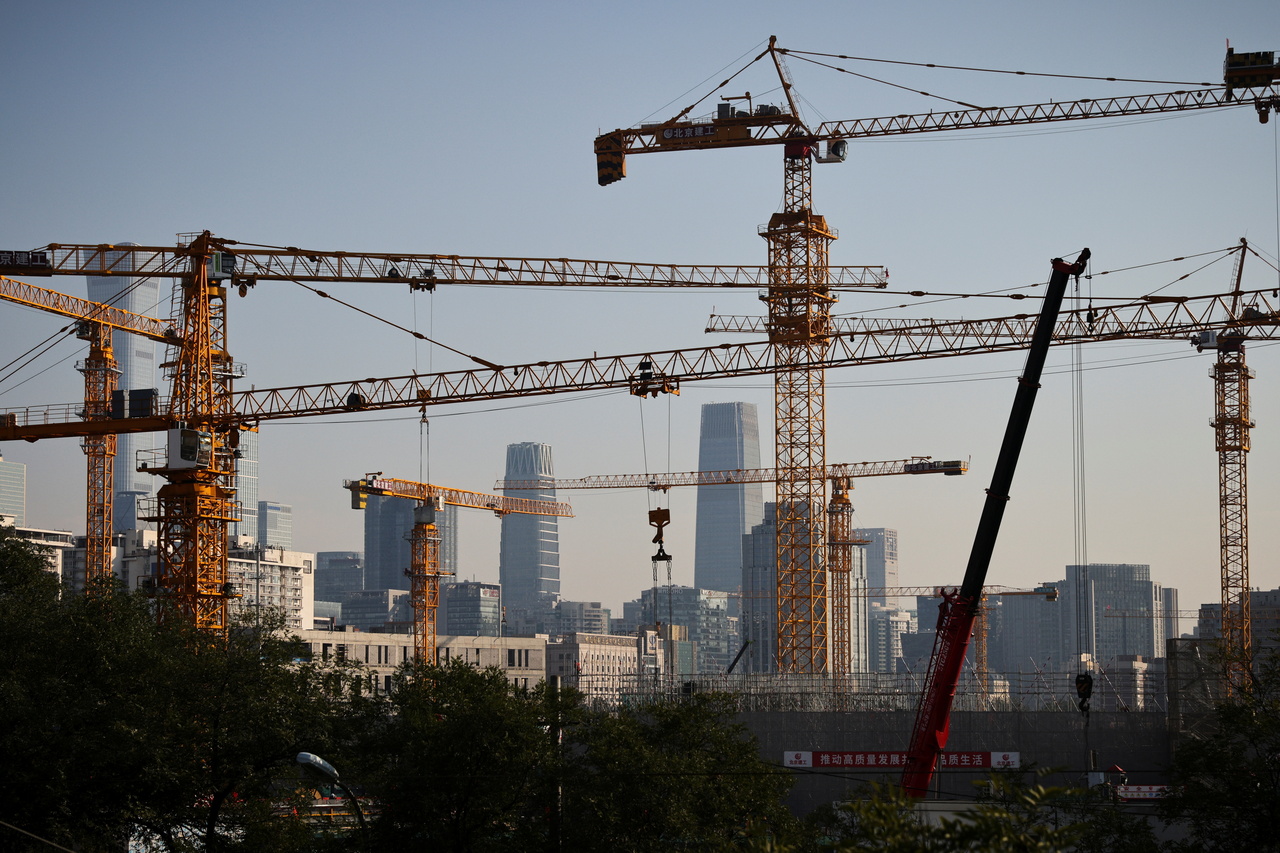China's economic growth eases to 4.9 per cent in third quarter
Sign up now: Get insights on Asia's fast-moving developments

China reported 18.3 per cent year-on-year growth between January and March this year.
PHOTO: REUTERS
BEIJING - China's economy grew 4.9 per cent in the third quarter of this year as the world's second-largest economy continued to slow down against the backdrop of energy shortages, fresh Covid-19 outbreaks and a more sombre property market in the country.
The quarterly result released on Monday (Oct 18) was largely in line with the expectations of analysts of 5 per cent in an earlier Bloomberg poll.
China reported 18.3 per cent year-on-year growth between January and March this year, and 7.9 per cent in the following three months, compared with the same period last year.
So far, the economy has grown 9.8 per cent this year, higher than the "above 6 per cent" target set during the National People's Congress (NPC) session in Beijing in March. The NPC is China's Parliament.
"Overall, the economy maintained the recovery momentum in the first three quarters," National Bureau of Statistics spokesman Fu Linghui told the media on Monday.
"But uncertainties in the international environment are mounting, and domestic economic recovery is still unstable and uneven," he added.
Analysts told The Straits Times that slower-than-expected industrial activity due to electricity shortages was the main drag on growth in the third quarter.
Industrial production, which measures activities in the manufacturing, mining and utilities sectors, grew 3.1 per cent last month from a year ago, lower than analysts' expectations of 3.9 per cent.
Mr Chris Leung, DBS Bank's chief China economist and executive director, said that recent power shortages had hit manufacturers in the world's largest factory "indiscriminately".
In late September, as many as 20 provinces have reportedly been hit by the surge in the price of coal and a shortage of electricity, with factories temporarily shuttered or working on short hours.
Beijing has since emphasised that it will boost coal supply and ensure the availability of electricity.
Dr Tommy Wu, lead economist at Oxford Economics, said that "disruptions to domestic supply chains due to electricity shortages will likely linger" but that shortages should ease in the coming months.
Strict Covid-19 measures imposed in Fujian in south-eastern China, among other provinces, also weighed down growth between July and September, as the authorities battled the more contagious Delta variant, analysts said.
Despite the gloom, however, bright spots remain as retail takings grew 4.4 per cent year on year in September, beating analysts' projection of 3.5 per cent.
It was also higher than the 2.5 per cent year-on-year growth recorded in August.
But Tsinghua University economist Yuan Gangming said that growth in the retail sector could have been higher if not for the restrictions imposed during the latest Covid-19 outbreaks.
"Covid-19's impact on the retail sector was particularly obvious in August," he said.
Analysts expect China's weakening property sector, which accounts for up to a quarter of gross domestic product to weigh even more heavily on growth in the next quarter.
Concerns about embattled developer Evergrande spread last month, when the world's most indebted property developer missed various offshore bond payment deadlines, raising fears of contagion risks to credit and property markets in China.
Dr Wu said: "The electricity shortages and production cuts will become less of a problem... But the real estate downturn should weigh substantially on the fourth quarter's growth."
Already, home sales by value tumbled 16.9 per cent in September from a year ago, following a 19.7 per cent drop in August, according to calculations by Bloomberg.
During Monday's briefing, Mr Fu acknowledged a slowdown in the real estate sector but insisted the impact on overall growth was limited.
Still, slower growth in the third - and even fourth quarter - will not hurt China's chances of hitting its growth target this year, with Mr Leung saying that was "out of the question".
"Even if China records 4 per cent growth in the fourth quarter this year, overall growth will still come in at 8.1, or 8.2, per cent."
Last year, fourth-quarter growth was 6.5 per cent and overall growth was 2.3 per cent. China was the only major economy to grow in 2020 as other countries struggled to deal with the Covid-19 pandemic.
Premier Li Keqiang said last week at a trade fair in the southern Guangdong province that China had "adequate tools to cope with economic challenges, including the strains on energy and electricity supply".
He added that policymakers would strive to keep inflation in check.


